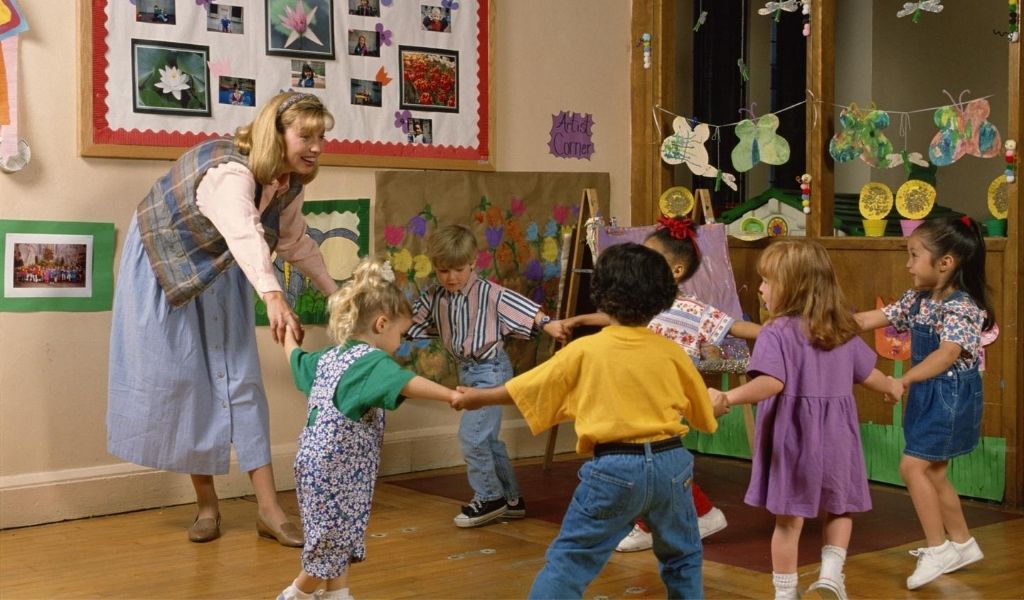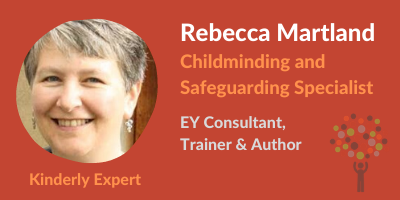Last week we held a live Q&A webinar on the revised EYFS. Even though it is now a month since the revised framework came into force, there is still a lot of uncertainty out there as to what it all means. We asked early years consultant, Rebecca Martland, to provide some answers!
Ofsted will NOT ask to look at written observations, tracking documents, learning journals etc. The only written learning and development document they may ask for are any relevant 2-year progress checks as these are statutory.
You CAN ask Ofsted to look at your written records, but they are not obliged to. It is a good idea to only use these if you want to illustrate something you have been talking about.
You CAN have crib notes for your own reference. These can be really helpful if you are nervous and worried about forgetting things.
When talking about children, Ofsted will want to know:
They will NOT expect you to use terms such as Emerging/Developing/Secure or age bands in your descriptions. Consider using language such as ‘good progress’ or ‘expected/typical development’ – but this is not a requirement.
Ofsted will NOT ask to look at written observations, tracking documents, learning journals etc. The only written learning and development document they may ask for are any relevant 2-year progress checks as these are statutory.

You are observing all the time – noticing children’s interests, skills, abilities and knowledge and comparing this to what they knew/could do before. You could call this ‘mentally tracking’ children.
It is up to you to decide which of these observations it would be of value to record in writing, what format, and in how much detail.
There is no set number and they do not need to be tallied, coded or logged unless you find it useful to keep a note. Ofsted certainly won’t be counting them!
Think how you will use the written observation: who is it for? Does it tell you something new (remarkable!) about the child or help you monitor a possible concern? You might do more written observations where you have concerns over an aspect of a child’s development.
How you keep observations and any other written records you CHOOSE to make is up to you. Some people like learning journals – paper or online – as they are a convenient way to keep everything together, but not a requirement.
Observations DO NOT need to be linked to an Area of Learning and Development unless you feel this would be helpful and SHOULD NOT be linked to an Early Learning Goal, Development Matters statement or Birth to Five Matters statement.
You DO NOT need to add a ‘next steps’ to your observations. However, you should always be aware of what your planning is to support that child’s learning and development (using your professional judgement and knowledge of child development) and be able to discuss this with Ofsted at an inspection.
Written planning is NOT a requirement and Ofsted will not ask to look at it, but you can have it in writing if it helps you.

We have moved away from age bands and age-related statements as this was causing children to be labelled as falling behind or failing when they were actually still making good progress.
USE YOUR KNOWLEDGE of typical child development to inform your assessment from your observations (written and ongoing, daily, visual observations) and decide is a child where you might expect them to be and making expected progress. This should also be informed by their starting points, as not all children may be at the stage you might expect for their chronological age BUT are still make good and expected progress based on where they were developmentally when joining your setting.
If your child development knowledge is not yet secure, a bit rusty or you just want a bit of support in making your judgements, especially if you have concerns about a child, consider using an assessment tool such as: OP&L, Development Matters 2020 Checkpoints, Universally Speaking, Birth to Five Matters non statutory guidance or a child development guide such as Mary Sheridan’s ‘From Birth to Five Years’.
Another strategy is to hold staff meetings and periodically review each child’s progress (not every child at every meeting!). This can be helpful if multiple staff are involved in the care of children, especially where the child’s key person is part-time.
The terminology you use is up to you, but we are moving away from ‘Emerging / Developing / Secure’ (EDS) as these are not appropriate in this context. Some people are using ‘on track/not on track’ or ‘working towards’ but these, like ‘EDS’ come from language associated with the Early Learning Goals and the EYFS Profile assessment at the end of Reception so are not very helpful.
Kinderly Together uses the terms of ‘No concerns / Usual support / Extra support / Specialist support’ to describe the intention of the practitioner in supporting the child, rather than a deficit model of the child’s abilities. Another phrase being used is ‘Not yet / Trying / Yes’ as the response to assessment questions.
Two-year progress checks are statutory and MUST be completed when a child is between 24 and 36 months and can take this same format. They should include input from any other settings and the child’s parents.

When a child joins your setting, you need to gather information from their home and any previous setting regarding their development, interests, skills, abilities, knowledge, background, routines, special people etc. so you have a rounded understanding from day one. Settings call this ‘All about me’, ‘Baseline’, ‘Starting points, ‘On-entry assessment’ etc. It is up to you what you call it, what format it is in and how much (if any) is in writing. You could use something like OP&L or the Development Matters Checkpoints as part of this process.
You will then observe the child (as above) during their first few days/weeks and compare these observations with the information gathered previously, to decide how you are going to best support them (planning) going forward. Some settings add this information to their initial assessments/reports, others create new ones. Again, it is up to you to decide what works best in your setting and for your children and families. Ofsted won’t want to look at any written reports (apart from 2-year checks) so only write down what is helpful.
Transition documents are NOT an EYFS requirement, but some Local Authorities may expect them as part of your funding agreement so do check this. See notes on tracking above for format and content suggestions.
Baseline assessments should not be confused with the new Reception Baseline Assessment which is a new requirement to be conducted by teachers in schools when children start in Reception, during their first 6 weeks.
Summative assessments, termly reports, transition reports are NOT an EYFS requirement, but you are free to do them if you find them helpful. These should be descriptive rather than focused on data, simply summarising key observations of the child’s interests and development, highlighting their strengths and any concerns and commenting on any particular plans for further support.

Yes. The revised ‘EYFS 2021’ is the statutory framework for all early years providers. It sets out what you MUST do to remain compliant and includes requirements for learning and development, assessment, safeguarding and welfare.
The ‘revised EYFS’ should not be confused with ‘Development Matters’ or ‘Birth to Five Matters’, both of which are non-statutory (i.e., optional) guidance and have been produced to support practitioners to implement the EYFS effectively. You can choose to use either, both or neither of these to help in your assessment, planning and support for children.
The EYFS Profile refers to the statutory assessment of children’s progress against the Early Learning Goals undertaken at the end of the Reception Year, by the teacher if a child is in school, or their EYFS provider (with LA support) if the child has deferred their school start.
Thank you to Rebecca for providing all these answers. We hope you find them useful!
